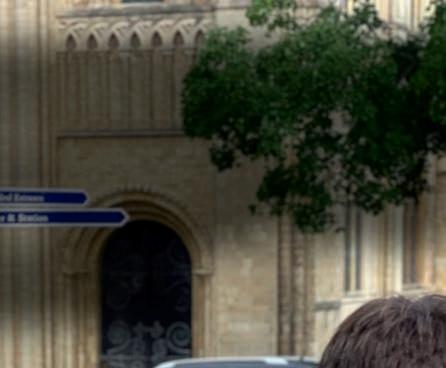
5 minute read
Not an Easy Balancing Act Our interview
NOT AN EASY BALANCING ACT!

Richard Harman, the CEO of AGBIS, talks to David Moncrieff about the challenges which have confronted school governors during the COVID-19 pandemic.
Independent schools, like every other business in the country, went through a tumultuous period in 2020 with the COVID-19 pandemic; what have proved to be the particular challenges for school governors?
Probably the biggest challenge has been working out how best to support senior staff, who have been under the most enormous pressure, whilst at the same time fulfi lling their duties as governors, company directors and in many cases charity trustees.
Like everyone else, governors have had to move into ‘ oom world’, fi guring out how to do governance effectively by remote means. I think some of this has been very effective whilst other aspects are problematic. How can you really know what is happening in school if you cannot visit the site? How can you replace those informal marginal conversations around a meeting that are often so important?
Finances have been a challenge for many, particularly around the question of fees for the summer term when schools were closed and everything moved online. The crucial thing about how schools handled this was communication; for better or worse, reputations were enhanced or otherwise.
Governing bodies have had to become as nimble and exible in their own methods of working as they can. My advice to them has been keep an eye on your risk register (which will have changed since this time last year), remember that ‘cash is king’ – and don’t panic!
Do you feel that the needs and concerns of the independent sector are properly considered by central government and education policy-makers?
lthough it has been diffi cult at times to keep up with the changing government guidance through the pandemic (and I am not necessarily blaming them for that) we have been fortunate that our various associations have had good links to ministers and offi cials at the f , funnelled via the ISC staff. This has helped our voice get heard. These regular lines of communication have been benefi cial to schools, even if much of the work happens ‘offstage’ and is therefore unseen.
How do you feel an effective relationship between governors and the executive leadership team of a school is best achieved when farreaching decisions have to be made at some speed?
‘More haste, less speed’, as the old saying goes. It is remarkable what can be done at pace under pressure but care still needs to
COVID-19 has been ‘the great accelerator’

be taken. Good lines of communication, especially between Head and Chair but also including Bursar/Clerk and Chair of Finance, have been more important than ever. Some schools have found it useful to convene small governor/ executive working groups to look at different aspects – immediate challenges like fees in lockdown, questions about capital projects, longer-term strategic challenges – but they must remember that governance is collective and so no sense of inner cliques or power groups should be allowed to develop. They must also resist the temptation to get drawn into operational matters which are the proper preserve of the executive – whilst supporting them and being a sounding board as needed.
The hallmark of schools that have been handling the pandemic most successfully is empathy – and this starts at the very top, with the governing body setting the tone.
What do you think are the stand-out features of the independent school sector’s response to the pandemic?
Obviously, there are exceptions – but the following are the top three features I have seen: • the rapid and successful shift to remote teaching and learning; • excellent pastoral care, both during school closure and since they have returned; • communications with parents and other key stakeholders.
As a general point, the strengths and weaknesses of each school going into the pandemic have been brought to the surface as it has unfolded; existing trends have been turbocharged. COVID-19 has been ‘the great accelerator’.
existing trends have been turbocharged
We are all aware that some schools are considering mergers, refi nancing and, sadly, in some cases closure. What is the role of the governing body in identifying and exploring options and validating proposed plans of action?
The good news so far is that there are probably not as many schools in this position as had been feared over the summer; pupil numbers have held up very well to date – but there are certainly some in diffi culty and we do not yet now the extent of the longer-term economic impact.
Mergers, acquisitions and sales are specialist areas and governors will need to take professional advice early on if they are considering those options, whether from a position of relative strength or weakness, or simply to ’future proof’ their schools.
If you are considering something like a merger, think early on about an effective communications plan – but be very careful to balance desirable transparency with the need for confi dentiality.
Whether or not radical structural action is being considered, very careful cost control is vital. The spotlight is currently on the costs to employers of teachers’ pensions, pressures on pay, staff: pupil ratios – all at a time when staff are generally working harder than ever. Not an easy set of rapids for governors to navigate.
Looking ahead to the postpandemic era, how do you view the future of the independent school sector unfolding?
Using remote learning as part of a blended approach to teaching and learning is here to stay. Likewise, the use (but not over-use) of video technology for even more effi cient and effective for governance/meetings. There will be greater consolidation in the sector, with schools moving into formal or informal groupings, mergers etc. Diversity and inclusion will move rapidly up the agenda for many schools, as will the environment/green issues.
Many schools will enhance their standing with parents and the community by adapting and communicating exceptionally well; some will not. The educational advantage gap will be a major political issue for years to come public benefi t, partnership working and widening access via bursaries will be more important than ever.
So, fi nally, when you look back on 2020 – and we know the crisis isn’t over yet – what impressed you most about our schools’ broader response to the pandemic?
I have been astonished, and massively impressed, by the way staff and leaders in our schools have responded in the best interests of both the children in their care and the communities around them. Whether looking after children of key workers during lockdown, working in partnership with local schools and faith groups, helping raise funds for food banks or in so many other ways on top of the ‘day job’, they really have gone the extra mile. ●
RICHARD HARMAN is CEO of AGBIS. He was previously Headmaster of Aldenham and subsequently Uppingham. Richard is a past Chairman of the BSA and of HMC.










